Hello, dear fans! Today Panda is back to introduce fun and interesting Docker projects, if you like it, remember to click a follow oh!
引言
A while back Panda posted about how to deploy a private cloud in the Polar SpaceMIGPTserverThe tutorial text, whichMIGPTserverCan make our home small love speakers connected to the AI model, period more intelligent, but also has the function of networking to answer your questions. But that’s just for the small love of the initial “tuning”, for intelligent speakers there is a point that makes the panda very disgusting point, want to listen to what song you call it, many times get the reply is to try to listen to 30 seconds, and then let you open a member. Please, I have NAS, I still open what member ah, I locally downloaded can not be used directly? Yes, you can!
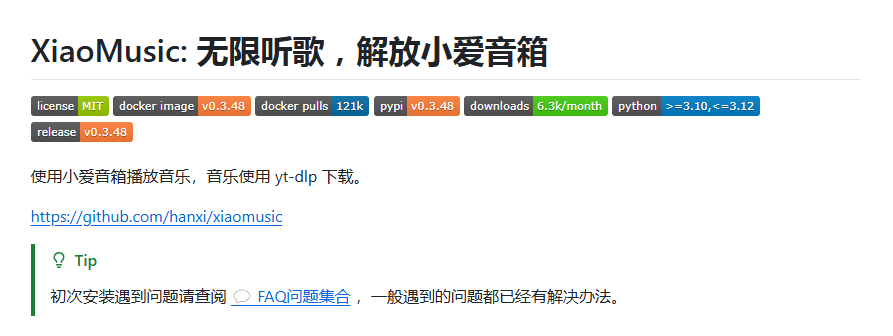
Today we are going to introducexiaomusicProject, a project that allows Little Love Speaker to access local music and play it, and he also supports Docker, so the hundreds of gigabytes of HIFI resources that we store in the NAS can be played directly through the Little Love Speaker, which on the one hand increases the interaction between the NAS and the family’s smart devices, and on the other hand doesn’t have to worry about the membership any more.
Equipment Introduction
Last time we used the Z423 flagship version of PoleSpace and deployed MIGPTserver on it, so today we are still deploying xiaomusic on it, the family is to be neat and tidy. I believe that recently read my article of the extreme friend is very much, after all, Panda recently extreme space tutorials written very much, so Panda also help you look at the project, the project has an ARM version, so the Z2Pro theoretically can also run, which is the value of the Z2Pro rose again.
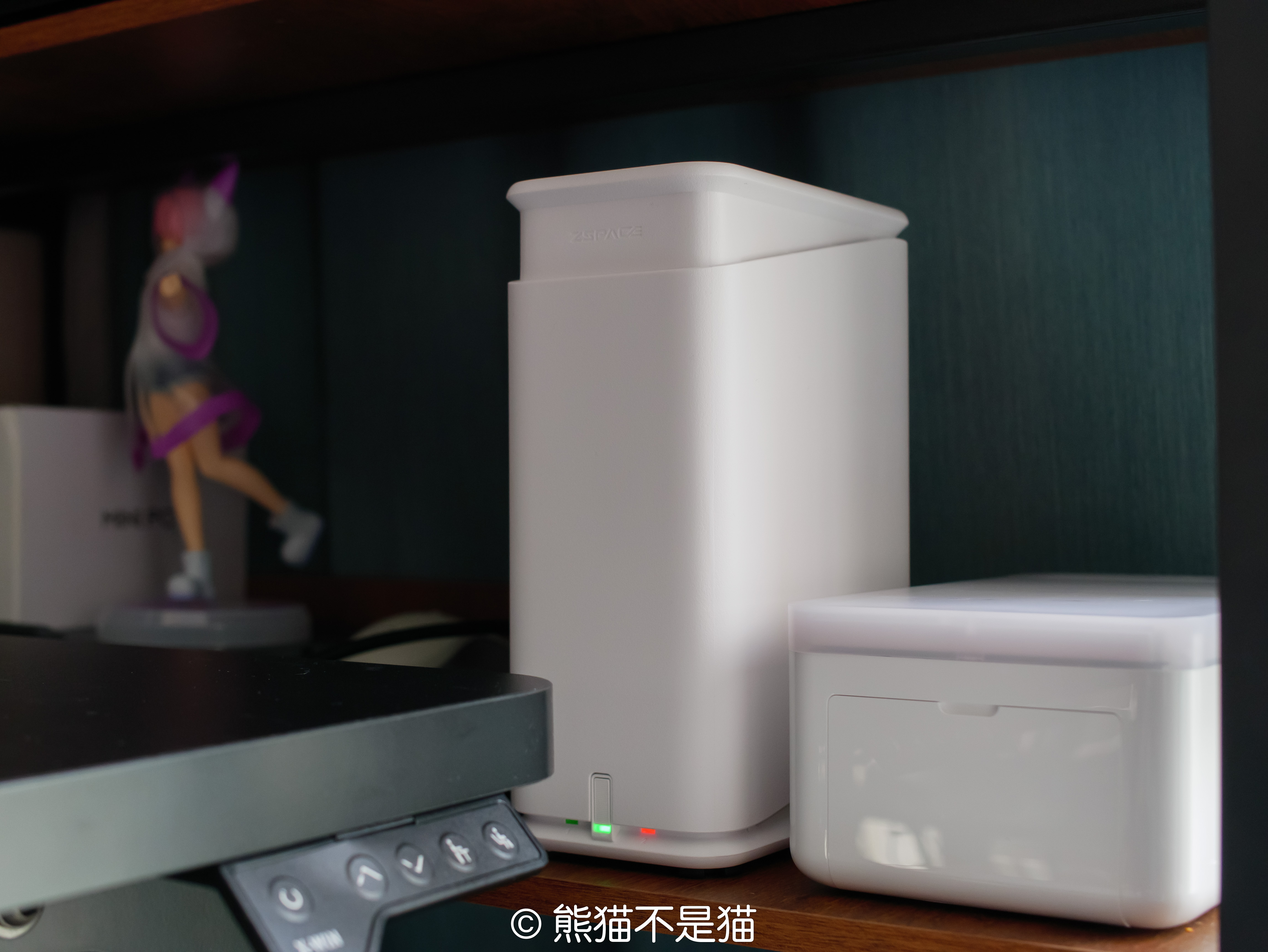
In addition to the Z2Pro, like the old model Z4S of the pole space, now the Z4Pro running these two items are no problem, these are also Panda personally tested. Before the Panda’s music resources have been extremely music local playback to come, whether it is the interface or scraping are doing a good job, the audio format support is also OK, but the lazy always still want to direct voice control, so only to discover a little bit of today’s project.
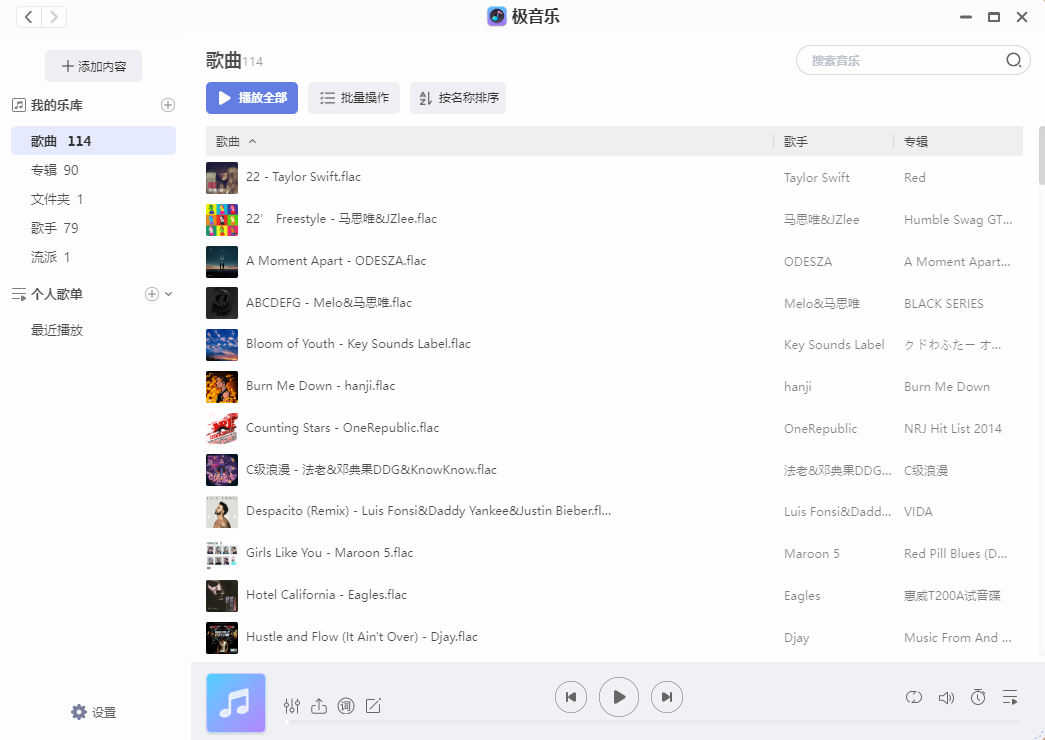
Project Preview
It is still the first time to do a preview of the project to see the effect and then according to the demand to decide whether to self-deploy. First of all, the project has a WEB console, but also two themes of the console, in each time into the console is optional.
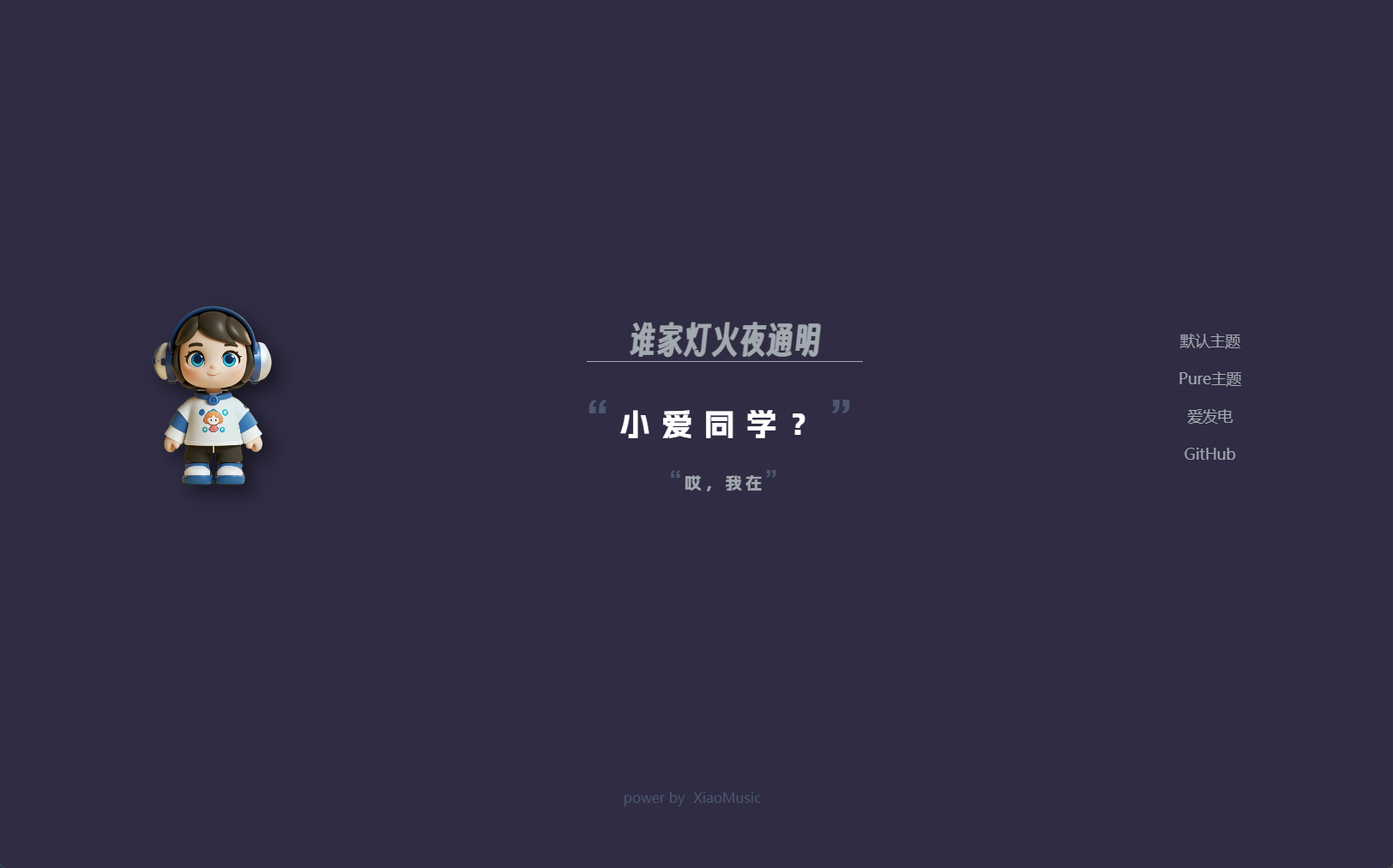
Here Panda is using the Pure theme as an example, after all, this theme is much better looking. Once you tap in, you can see the homepage with relevant tips, while on the left side, you can see Xiao Ai Device Control, Playlist, Account Settings, Settings, and About options.
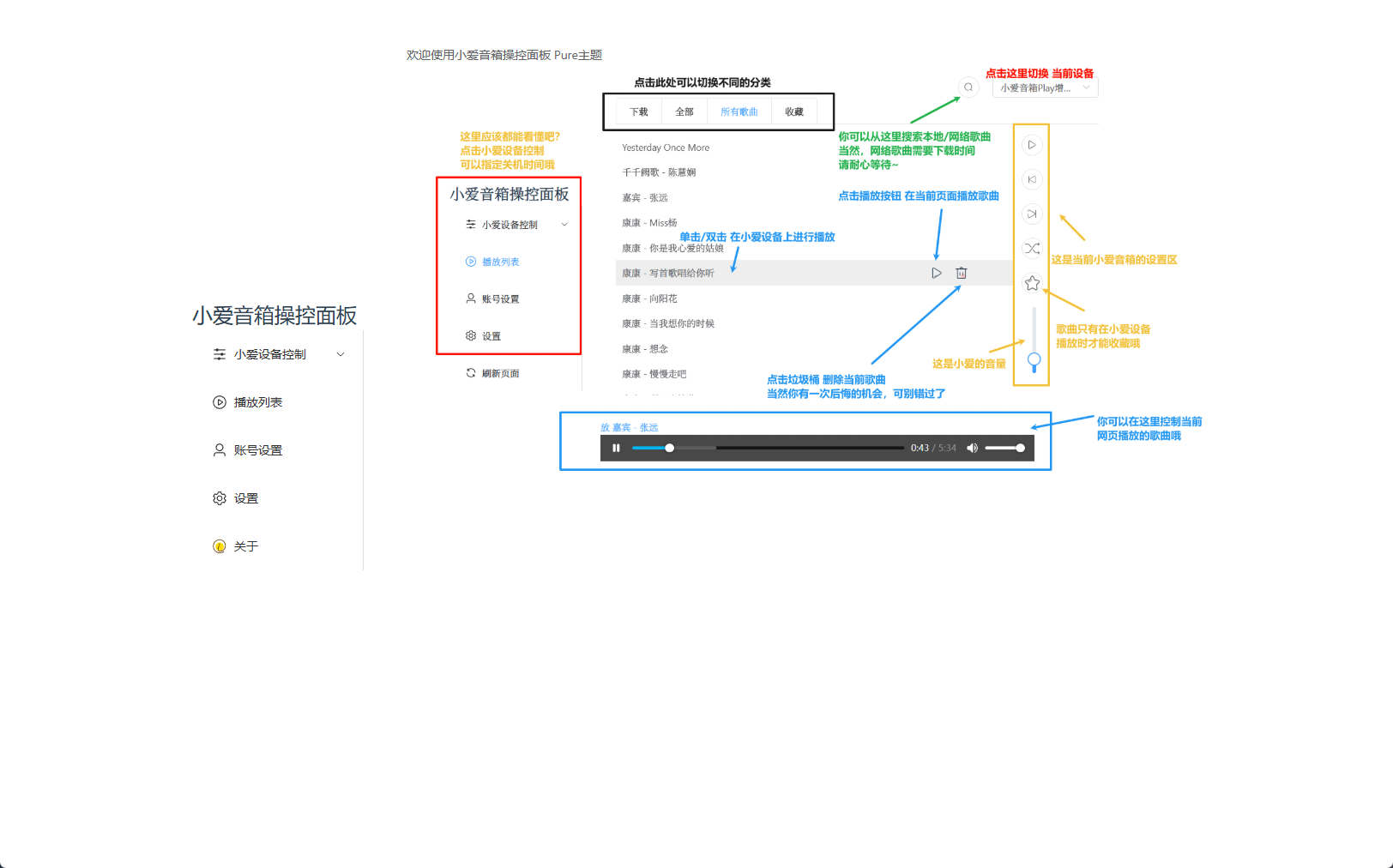
Before using the first in the settings to choose our audio device, but also provides the music catalog, download catalog, configuration catalog and so on options, wake up command here remember not to change, the project will automatically generate according to your choice of speakers. If you are a touch screen version of the small love speakers, the program also supports touch screen song content display.
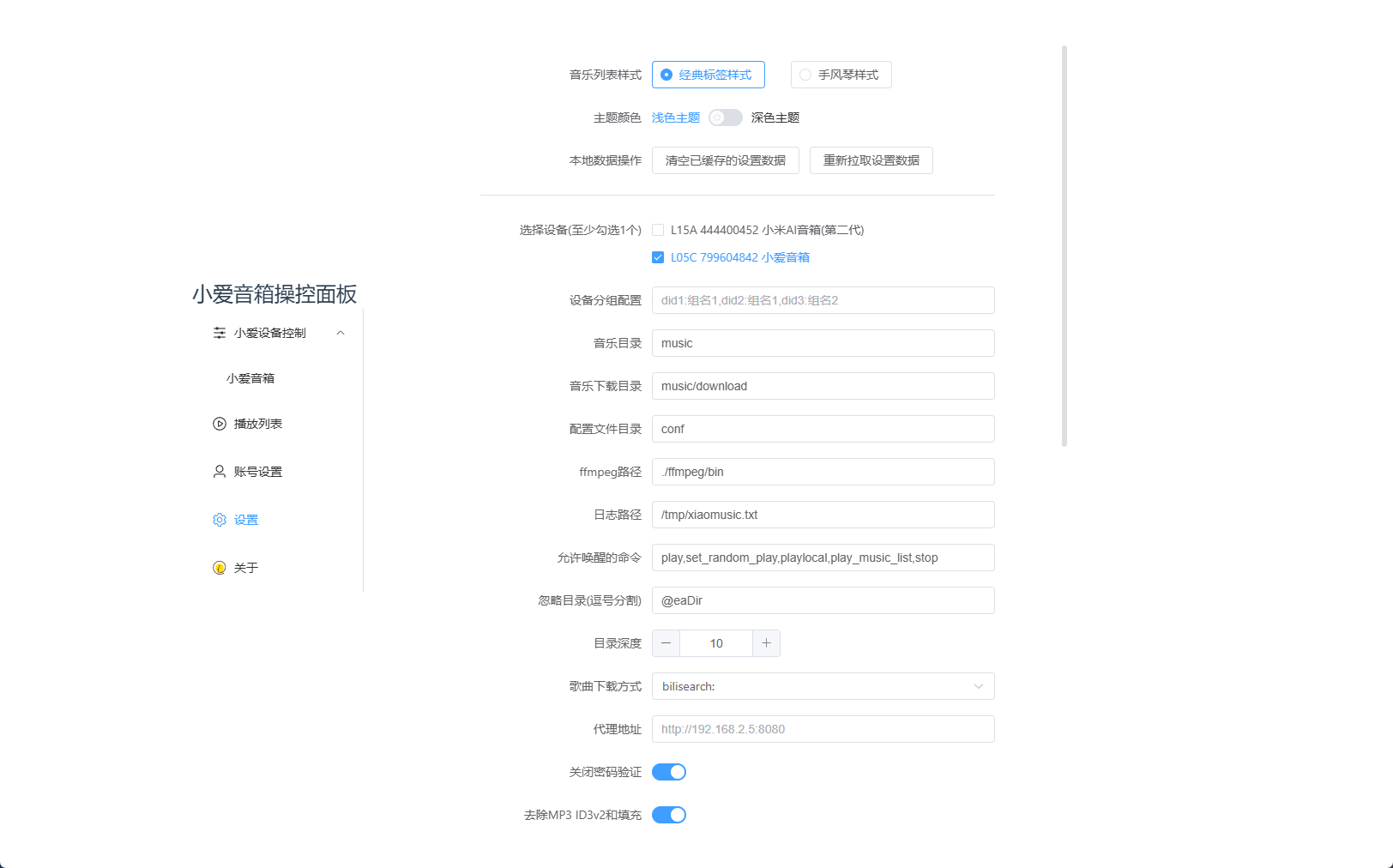
In the account settings here, we need to fill in the Xiaomi account (Xiaomi APP interface ID) and password, the web console also supports the setting of accounts and passwords, while the IP or domain name here needs to be the address of the project you deployed, that is, the IP address of our pole space.
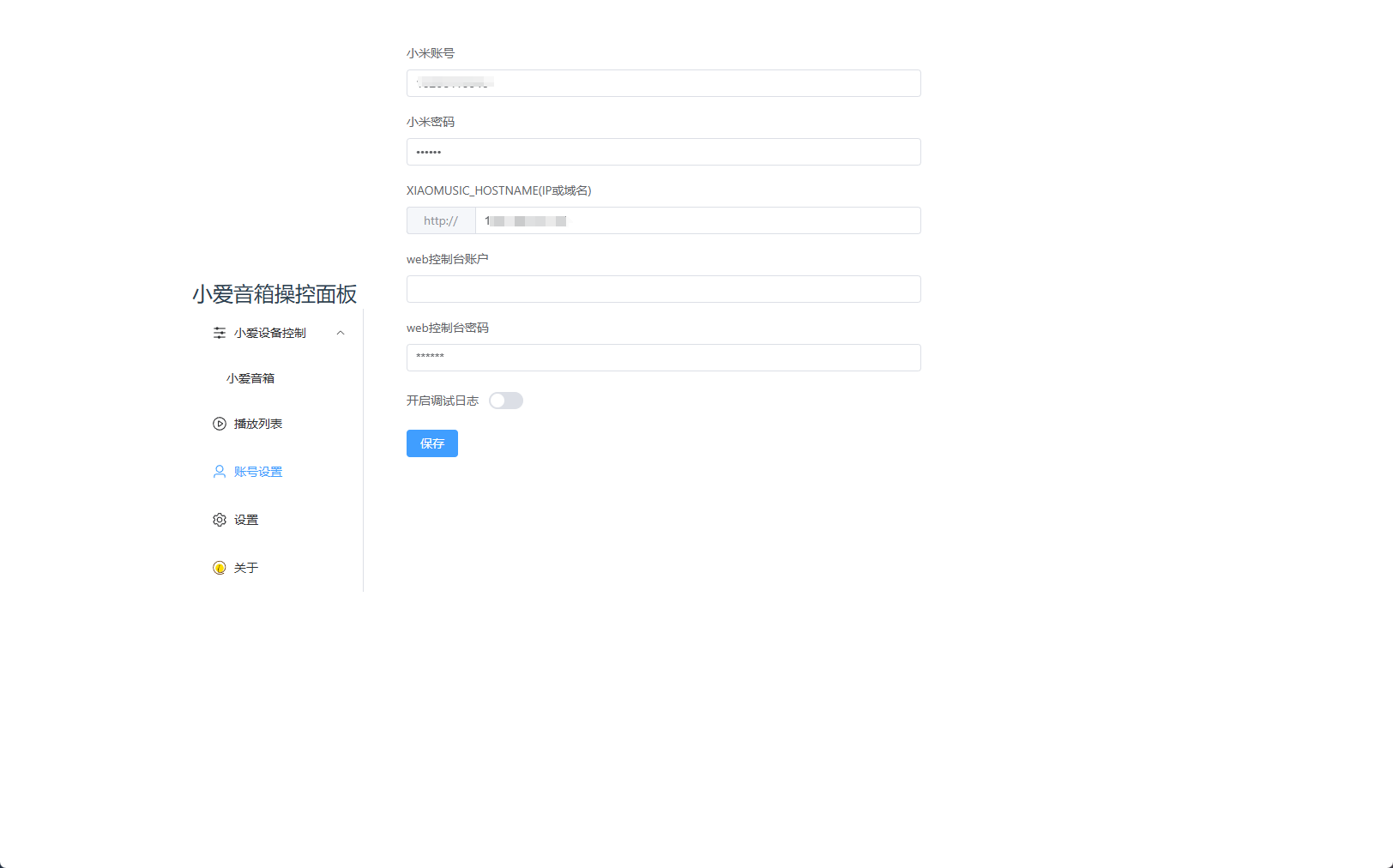
Finally, if the speaker is successfully connected to the project, you can see the corresponding speaker here in the Xiao Ai Device Control, and tap it to directly control the speaker’s shutdown as well as timer shutdown.
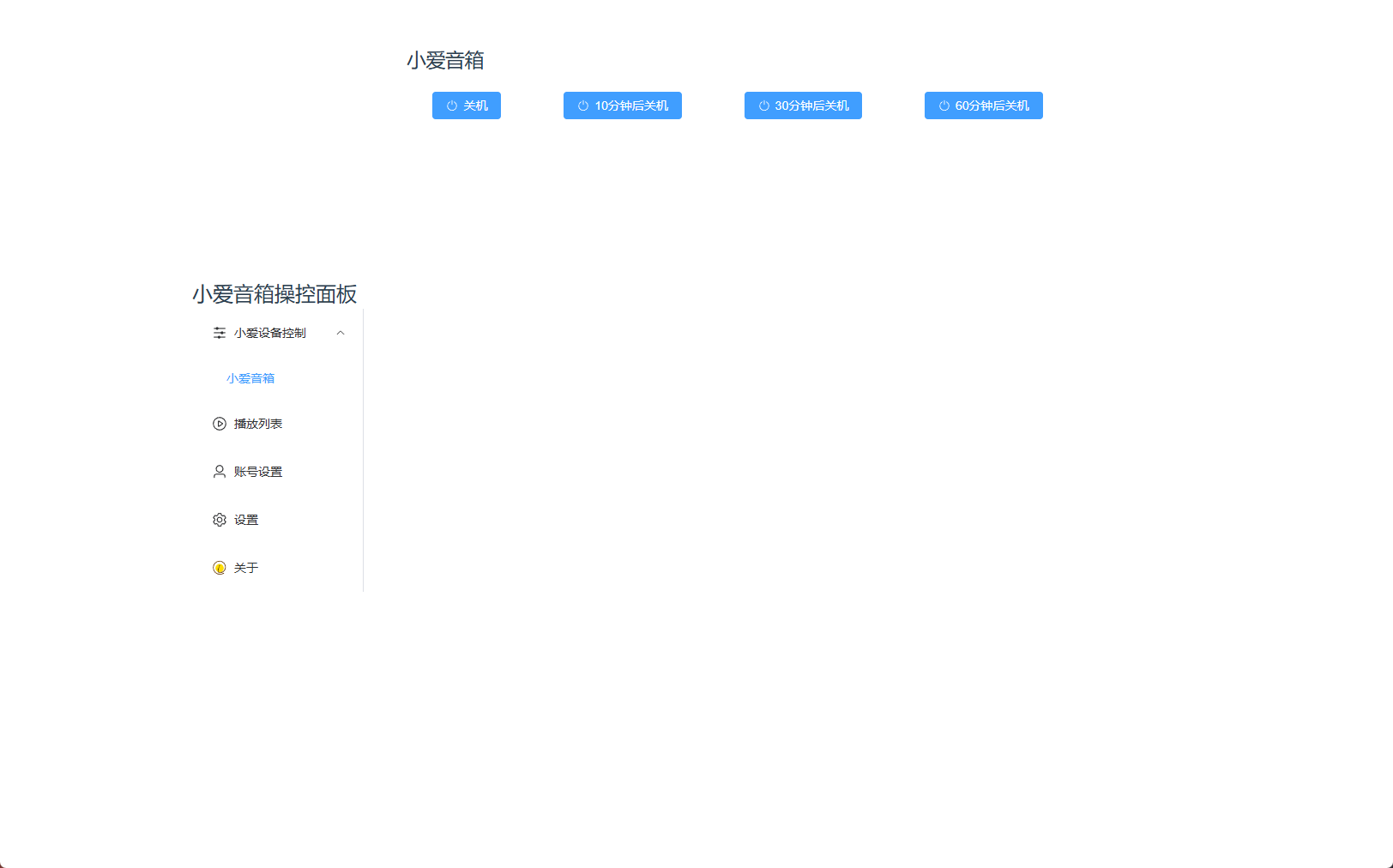
The default theme in fact, the function is similar, but the interface is relatively simple a lot, here Panda also screenshots show a little.
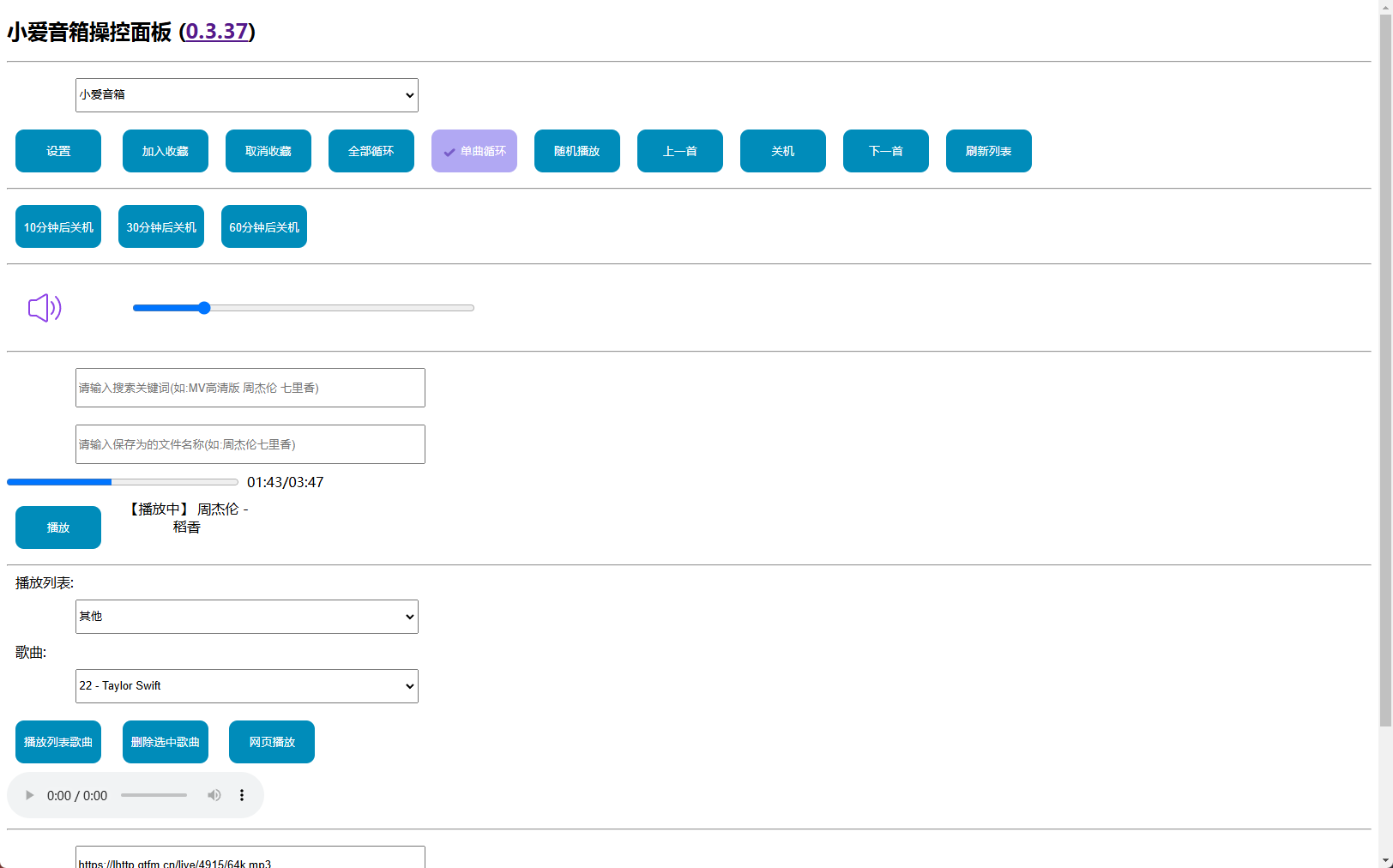
Project deployment
Before the project deployment, or do a good job of our acceleration source, here are a few recommended unrestricted and speed is not bad acceleration source, but also Panda has been using the acceleration source.
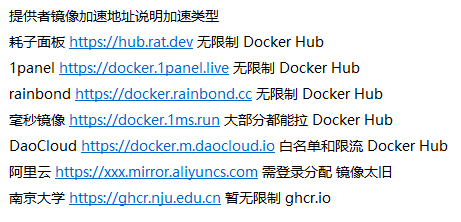
Of course, if you have the conditions, using a proxy is definitely the best way. After setting up the acceleration source we come to the mirror-repository interface, find the custom pull in the upper right corner and enter the mirror name:hanxi/xiaomusicand download the mirror.
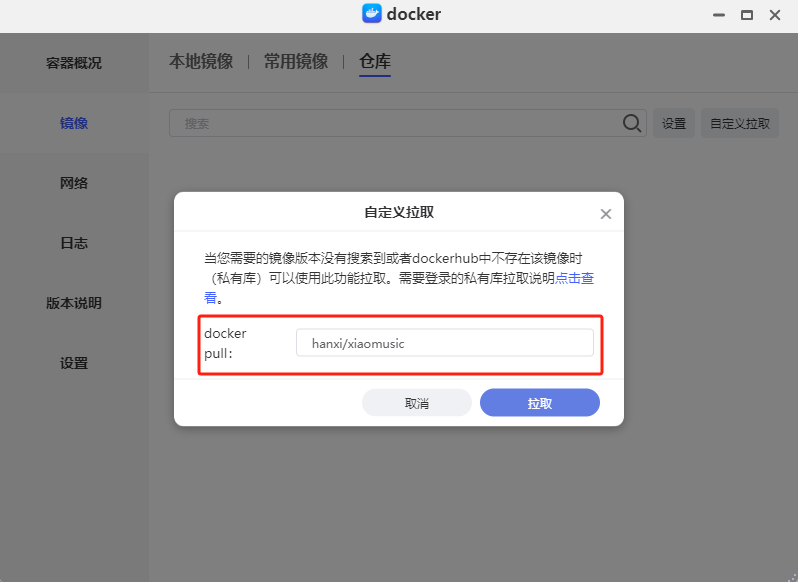
After downloading, double-click the image you just downloaded to create a container, give the container a memorable name, and casually turn off the performance limitations, after all, the Z423 Flagship Edition with Docker does not have much of a performance bottleneck.
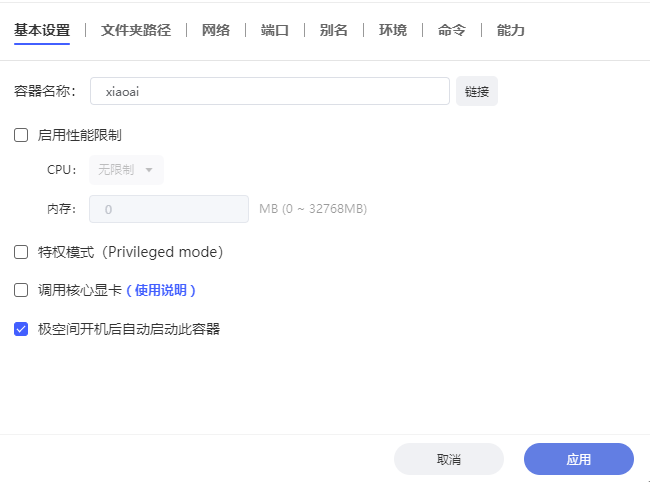
Here in the folder paths, we map the container’s configuration file and audio file storage paths to /app/music and /app/conf, respectively.
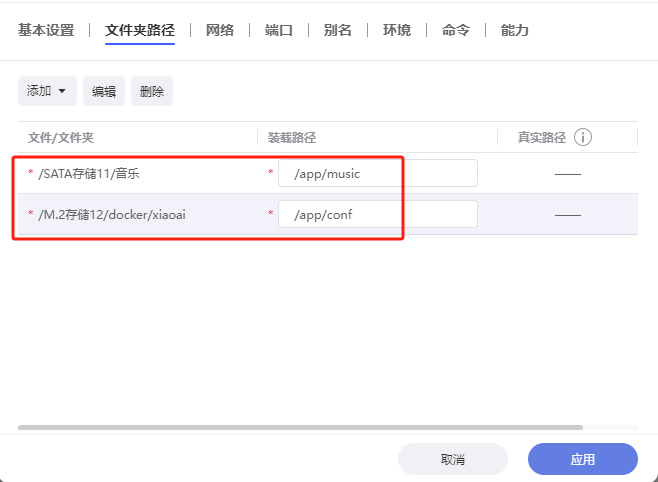
In the port here, we need to map port 8090, the container port can not be changed, the local port is arbitrary, do not conflict on the line.
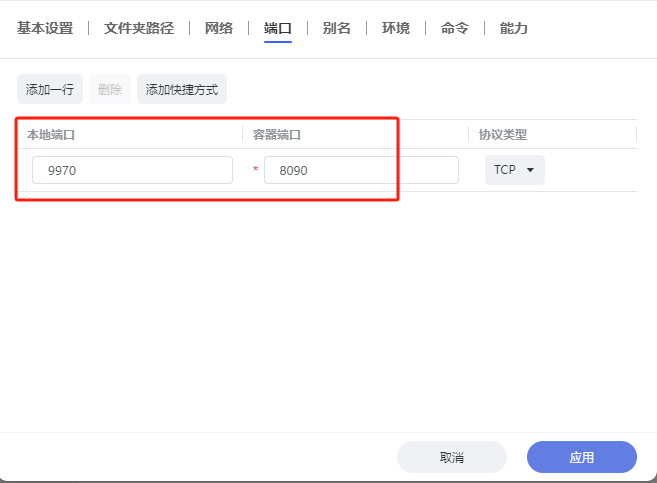
Environment variables here, if you do not want to log in to the web to set up a millet account, then you can directly increase the variables MI_USER and MI_PASS here, corresponding to the millet account ID and password, so that the initial creation can be used directly.
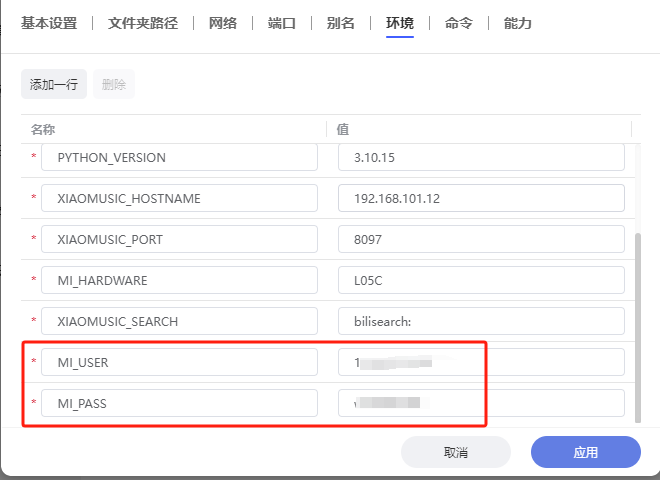
Finally, open your browser and enter the ExtremeSpace IP + port number to access the web control panel selection screen just mentioned, and just set it up according to your home’s speaker information.
summarize
Very good project, MIGPTserver + xiaomusic two projects can be combined to get a very good experience, basically can get rid of the “retarded” small love.
The above is all the content of this issue, if you think it is quite interesting or helpful to you, may wish to like the collection, and finally hope to get your attention, let’s see you in the next issue!